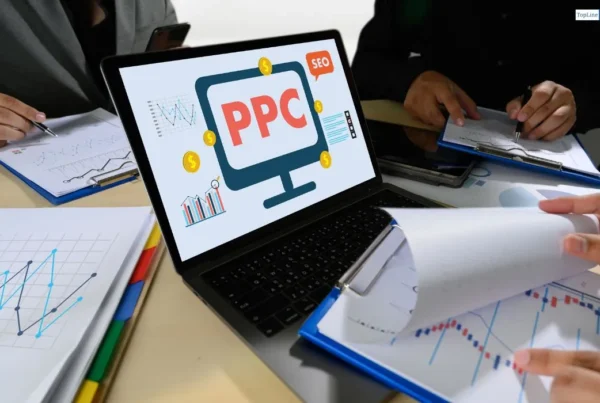In today’s digital age, where competition in the online space is fierce, having a strong online presence is paramount for businesses of all sizes.
One of the most effective ways to achieve this is through paid search campaigns.
In this article, we will delve into the world of paid search campaigns, exploring what they are, how they work, and why they are crucial for your business’s success.
Paid search campaigns, often referred to as Pay-Per-Click (PPC) advertising, are a powerful tool for businesses looking to increase their online visibility.
These campaigns allow advertisers to display their ads prominently on search engine results pages, driving targeted traffic to their websites.
Understanding Paid Search Campaigns
At its core, a paid search campaign involves advertisers bidding on specific keywords related to their products or services.
When a user enters a search query containing those keywords, the search engine displays the advertiser’s ad.
The advertiser pays a fee only when the user clicks on the ad, hence the name “Pay-Per-Click.”
The Key Components of Paid Search Campaigns
Keywords
Keywords are the foundation of any paid search campaign.
Advertisers must carefully select keywords that are relevant to their business to ensure their ads reach the right audience.
Ad Copy
Compelling ad copy is essential to attract users’ attention and encourage them to click on the ad.
Well-crafted ad copy should highlight the unique selling points of the product or service.
Landing Pages
The landing page is where users land after clicking on an ad.
It should provide a seamless and relevant experience, matching the user’s intent and the ad’s messaging.
Setting Up Your First Paid Search Campaign
Selecting the Right Platform
Google Ads and Bing Ads are popular choices for running paid search campaigns.
Advertisers should choose the platform that aligns with their target audience.
Budget Allocation
Setting a clear budget is crucial to control spending.
 Advertisers can allocate budgets to specific campaigns, ad groups, or keywords.
Advertisers can allocate budgets to specific campaigns, ad groups, or keywords.
Campaign Structure
Organizing campaigns and ad groups logically ensures that ads are displayed to the right audience segments.
Optimizing Your Paid Search Campaign
Keyword Research and Analysis
Regularly reviewing and refining keyword lists helps improve campaign performance.
Tools like Google Keyword Planner can assist in this process.
Ad Testing
A/B testing different ad variations helps identify which messages resonate best with the target audience.
Quality Score
Google assigns a Quality Score to each keyword in a campaign.
A higher Quality Score can lower the cost per click and improve ad rankings.
Measuring Success
Key Metrics to Track
Metrics like Click-Through Rate (CTR), Conversion Rate, and Return on Ad Spend (ROAS) provide insights into campaign performance.
Conversion Tracking
Setting up conversion tracking allows advertisers to measure the impact of their campaigns on valuable actions, such as purchases or sign-ups.
Benefits of Paid Search Campaigns
Instant Visibility
Paid search campaigns deliver immediate results, ensuring your brand is visible to potential customers from day one.
Targeted Reach
Precise targeting options enable advertisers to reach specific demographics, locations, and device types.
Cost Control
Advertisers have full control over their spending, making it easy to adjust budgets and bids as needed.
Challenges and Pitfalls
Click Fraud
Click fraud, where competitors or bots click on ads to deplete budgets, is a potential challenge. Advertisers should monitor campaigns for unusual activity.
Ad Fatigue
Repetitive or unoptimized ads can lead to ad fatigue, causing a decline in performance. Regularly refreshing ad creatives can combat this issue.
The Future of Paid Search
As technology evolves, paid search is likely to become even more sophisticated.
Voice search and AI-driven advertising are trends to watch in the future.
Conclusion
Paid search campaigns are a dynamic and effective way to boost your online presence.
When executed correctly, they can drive targeted traffic, increase conversions, and ultimately lead to business growth.
FAQs
Are paid search campaigns suitable for small businesses?
Yes, paid search campaigns can be tailored to suit the budget and goals of small businesses.
How do I choose the right keywords for my campaign?
Keyword research tools and competitor analysis can help you identify relevant keywords.
What is a good Click-Through Rate (CTR)?
 A CTR above 2% is considered average, but the ideal rate can vary depending on the industry.
A CTR above 2% is considered average, but the ideal rate can vary depending on the industry.
Can I run paid search campaigns on multiple platforms simultaneously?
Yes, you can run campaigns on multiple platforms to reach a broader audience.
Is it necessary to hire a professional to manage my paid search campaigns?
While it’s possible to manage campaigns independently, hiring a PPC expert can optimize results and save time.
How often should I review and update my paid search campaign strategy?
Regular review and updates are essential to keep your campaign competitive. Aim for monthly or quarterly assessments.
Can I target international audiences with paid search campaigns?
Yes, paid search campaigns offer geographic targeting options, allowing you to reach international audiences effectively.
Are there any industry-specific best rules for paid search campaigns?
Yes, different industries may require tailored approaches. Research industry-specific trends and benchmarks to optimize your campaigns further.
What is the role of ad extensions in paid search campaigns?
Ad extensions provide additional information and call-to-action buttons in your ads, enhancing their visibility and relevance.




